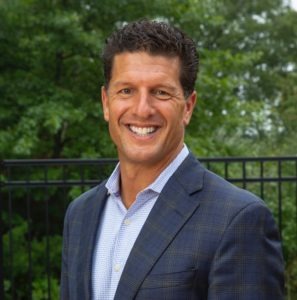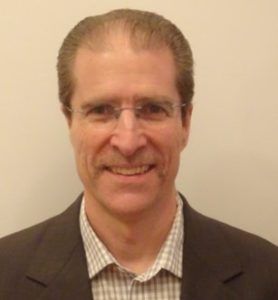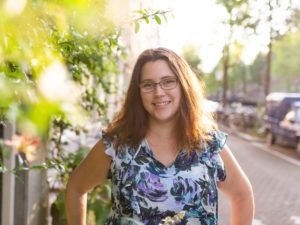Intergenerational program is ‘a perfect match’
Serendipity led to my seeing a clip about Windsor Park’s participation in the Speaking Exchange project in August on Comedy Central’s Colbert Report. Through the program, the Chicago-area continuing care retirement community’s (CCRC’s) residents help students in Brazil improve their English language skills through web chats.
Shortly thereafter, when I spoke with Windsor Park Executive Director Karen Larson, she explained that the CCRC’s involvement in the international and intergenerational program began serendipitously as well. A resident’s grandson, she explained, was a videographer working with the Foote, Cone & Belding (FCB) advertising agency, which was looking to tape a promotional video to kick off a project with CNA language schools in Brazil. The videographer, Grant Weiss, suggested Windsor Park as a location, and Larson signed on excitedly. FCB visited the Carol Stream, Ill., CCRC to tape residents interacting with CNA students in South America via computer screen. (I’ve embedded the resulting video at the end of this post.)
The video began being shared shortly thereafter, in May 2014, a few months before that Colbert Report episode I caught. “A few weeks after [the May airing], we actually started doing sessions more formally” in a pilot project with the school, Larson said.
Almost 600 older adults call Windsor Park home, she said. “We have residential living, which is apartment homes or duplex houses,” Larson added. “We have assisted living, licensed assisted living, assisted living for memory care, and then we also have skilled nursing with short-term rehab.”
About 16 residents—“10 diehards and five to six fill-ins,” Larson told me in a recent follow-up call—ranging in age from about 72 to 82 years, participate in the Speaking Exchange program. On Tuesdays and Thursdays every week, they head to a community apartment that has been outfitted with four laptops, comfortable chairs and small tables.
“The seniors sign in, show up at the room a couple minutes ahead of time and then log on and the student calls in,” Larson said, adding that a staff member sits with each resident the first few times he or she participates in a session, to ensure that the process goes smoothly. “It’s very simple,” she added. About 12 time slots are offered each day, three on each computer. Each session lasts 15 minutes.
Windsor Park originally planned to use its business center for the project, Larson said, but staff members quickly realized that the interactive nature of the project necessitated a different set-up, one that enabled all participants to hear clearly. “The residents use headphones, but it still needs to be very quiet, because the students are learning English,” Larson said, “so it’s not like a normal conversation that you and I have, that if there’s some distraction, you could still pick it up.”
Five-thousand CNA students are interested in participating in the program, so the school was working to expand the project with Windsor Park, Larson said. “We’re going to expand it to two other communities we have in Illinois,” Holmstad in Batavia and Covenant Village of Northbrook, she relayed in our original conversation, adding that parent company Covenant Retirement Communities has 13 campuses across the United States. “Our hope is to expand, certainly at Windsor, to include more residents, and then to our other sites as well,” Larson said.
More intergenerational relationshipsComputers and students figure into another intergenerational program involving Windsor Park of Carol Stream, Ill. For the past several months, local students, mainly from a middle school, and two teachers have been making regular visits to the continuing care retirement community (CCRC) to teach computer skills to 20 to 25 residents on laptops donated by their school district. Sessions in the community’s classroom are “packed every time,” said Windsor Park Executive Director Karen Larson. The one-on-one time is filled with laughter and has students, on return trips, specifically seeking out the residents they previously helped, she added. Regular pairings are possible with this program, unlike the Speaking Exchnage program, for which pairings are “random,” Larson said. The teachers will continue to visit the CCRC this summer when school is not in session, then the student visits will begin again in the fall, she said. |
Those hopes, however, have been put on hold until Brazil’s Internet infrastructure is stabilized, she told me Monday. About twice a month, Windsor Park’s residents can’t connect to the CNA via the Internet, or they lose the connection after it has been established. Sometimes the connection can be re-established fairly quickly, but other times, residents must wait until the next scheduled session. “If the connection was good, this program could be done anywhere,” Larson said, “but it’s hard on the seniors, because they’re not sure if they're doing something wrong.”
In the meantime, Larson has been fielding calls from all over the world, from students and schools wishing to work with Windsor Park or set up similar programs themselves. Although Larson said that Windsor Park isn’t interested in forging similar relationships with schools beyond CNA at this point, she has advised callers on the experience. (Communities interested in establishing ties with CNA may visit the schools’ website for more information.)
The CCRC does not receive remuneration related to the program, but participating hasn’t cost much, Larson said. Windsor Park purchased four webcam-equipped laptops—“We scrubbed everything off of them except the CNA program, so it’s very easy for the seniors to log on and get connected,” she said—as well as headphones, dedicated an apartment to the program, and enabled a staff person to devote some time to scheduling participants. The Windsor Park campus, including the apartment used for the Speaking Exchange program, is equipped with wireless Internet; if it hadn’t been, then the CCRC would have needed to purchase some kind of Internet service to participate. Windsor Park uses CNA’s proprietary software to facilitate the web chats.
Despite the disappointment associated with the shaky Internet connection, the rewards for participating in the program have been great, Larson said. “The seniors talk about how they like helping the students; intrinsic in all of us, I believe, is that desire to help others,” she said. “Seniors can get sort of left behind or feel that they can’t contribute too much because they’re physically failing or can’t get around like they used to, or people have kind of forgotten about them. But this is pretty easy. If their memory is intact and they can have a conversation, it’s very simple to participate.”
One Windsor Park resident even traveled to Brazil in September with her husband and a Windsor Park escort. She was featured at CNA’s annual meeting, where the Speaking Exchange program was touted.
All in all, “it’s a perfect match, to expand cultures and knowledge and break down barriers, and the seniors generally have more time,” she concludes. “I think it’s wonderful.”
Source: https://www.youtube.com/watch?v=nAsHjPchfDw
Access all blogs by this author.

Lois A. Bowers was senior editor of I Advance Senior Care / Long-Term Living from 2013-2015.
Related Articles
Topics: Activities , Executive Leadership , Technology & IT











